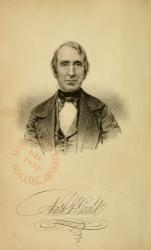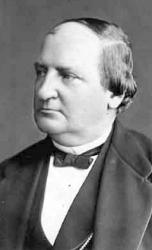1808 - 1832 Person Name: D. Dutton Composer of "WOODSTOCK" in The National Baptist Hymnal Dutton, Deodatus, jun., b. cir. 1810, was a native of Monson, Massachusetts, U.S. He was a Licentiate of the third Presbytery, New York, but died before ordination, about 1832. His hymns in common use are:—
1. On Thibet's snow-capt mountain. Missions. This appeared in pt. ii. of the Christian Lyrics, 1831, in 3 stanzas of 8 lines. It is an imitation of Bp. Heber's “From Greenland's icy mountains."
2. O where can the soul find relief from its foes. Heaven. The date and first published of this hymn is uncertain. It is given, together with the above, in the Plymouth Collection, 1855. [Rev. F. M. Bird, M.A.]
-- John Julian, Dictionary of Hymnology (1907)
=================
Born: December 22, 1808, Monson, Massachusetts.
Died: December 16, 1832, New York City.
Buried: Marble Cemetery, Manhattan, New York.
By age 14, Dutton was playing the organ at Center Church in Hartford, Connecticut. He attended Brown University and Washington (now Trinity) College (graduated 1828), and was licensed to preach by the Third Presbytery of New York. However, he never received a pastorate, and was still pursuing his studies at the time of his death. His works include:
The American Psalmody, 1829, with Elam Ives, Jr.
--www.hymntime.com/tch/
Deodotus Dutton


 My Starred Hymns
My Starred Hymns




